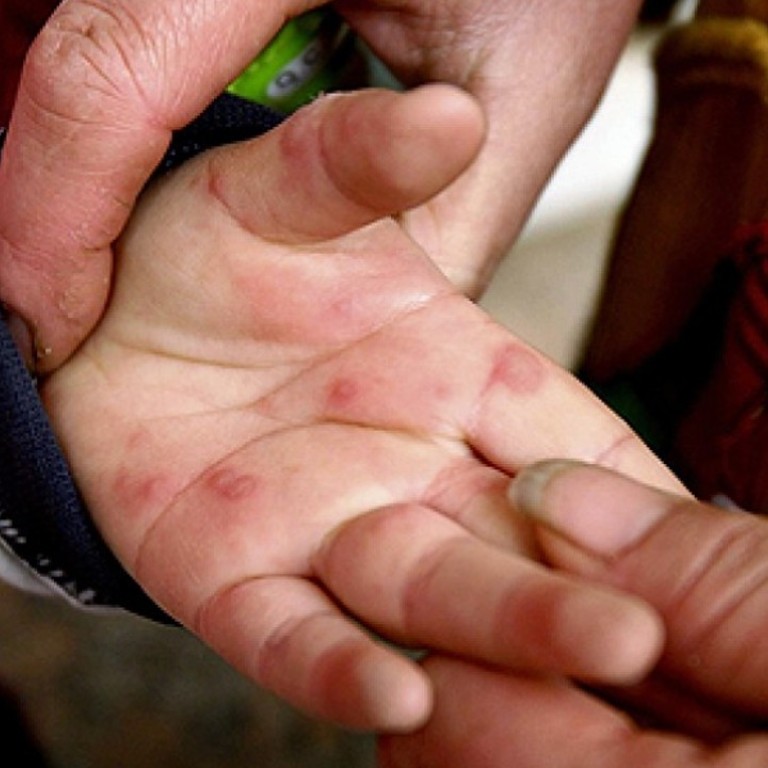
A ‘cure’ for hand, foot and mouth disease? Shanghai team say D5 antibody can spare kids from outbreaks fed by enterovirus 71
A research team in Shanghai claim to have developed a highly effective antibody that could severely curb the spread of hand, foot and mouth disease (HFMD), which has been afflicting children, mostly in Asia, for decades.
Hundreds of thousands of children in mainland China contract it every year from April to June, with the annual death toll reaching into the hundreds, statistics show.
HFMD starts with fever, painful sores in the mouth, and a rash of blisters on the hands, feet and buttocks, followed in some cases by more serious neurological, cardiovascular and breathing problems. Severe cases can lead to brain damage or death. It usually affects children under five.
But if the team led by Professor Cong Yao at the Institut Pasteur of Shanghai, which falls under the auspices of the Chinese Academy of Sciences, are correct, the days of HFMD outbreaks could be all but over. They published their findings in a recent issue of the journal Plos Pathogens.
READ MORE: Hong Kong police college shuts gym and pool after 21 recruits contract hand, foot and mouth disease
Antibodies are proteins that the immune system produces to fight alien substances. If their working mechanisms are fully understood, they can be produced en masse and used to make drugs that combat a range of diseases.
The Chinese team said the new D5 antibody is able to contain the growth of EV71 so that it cannot inject its RNA into a host cell to cause infection.
Understanding how the disease binds to other cells would “facilitate the development of D5-derived anti-EV71 drugs,” Cui and his colleagues reported
They used high-resolution electron cryomicroscopy - where the sample is studied at cryogenic temperatures below zero degrees Celsius - to show in unprecedented detail how D5 works.
To determine how effective the antibody is, the team tested it on mice. Unprotected specimens that had already been infected with EV71 “gradually developed clinical signs, including reduced mobility, limb weakness and paralysis,” the authors wrote.
The same mice “eventually died with a final mortality rate of 64.3 per cent and 53.3 per cent, respectively, by day 14 after infection,” they added.
“In contrast, 100 per cent of the mice that had received D5 survived without notable clinical signs,” they continued.
“These results indicate that D5 treatment fully protected mice from EV71 infection.”
New drugs featuring the antibody would first have to go through several stages of clinical trials to make sure they are effective and do not pose a health threat to the general public, the team said.
They declined to predict in the paper when such a vaccine would be commercially available.
The team could not immediately be reached to comment on the matter.

